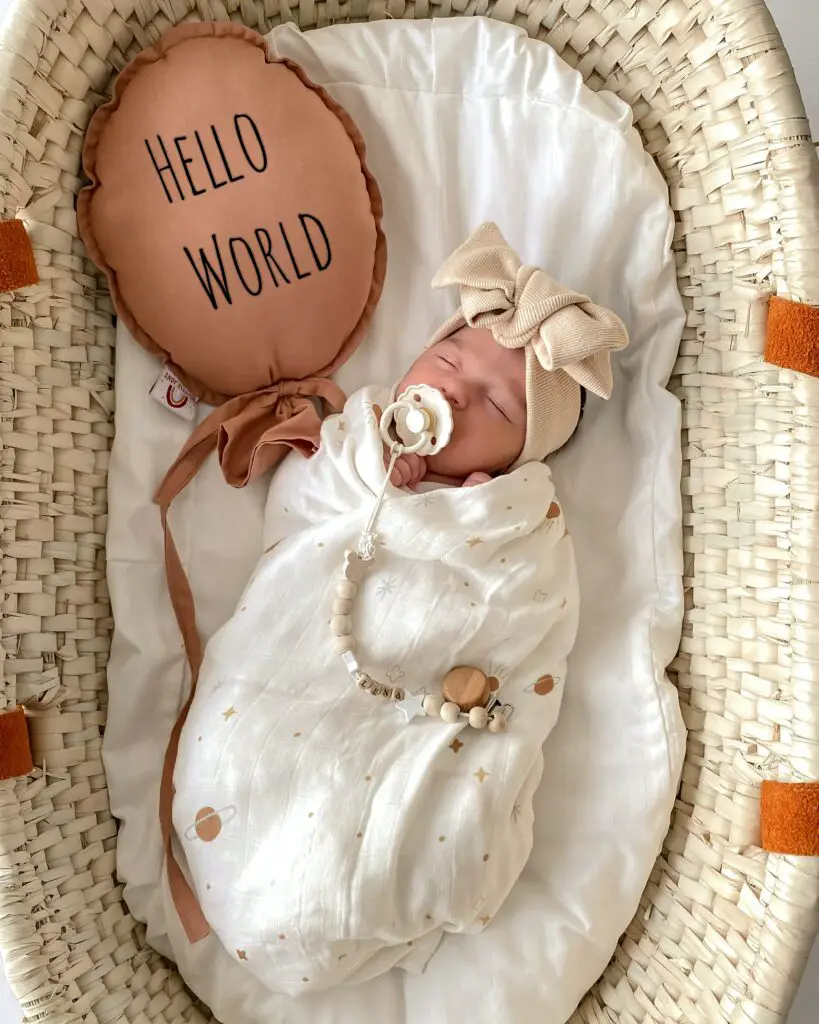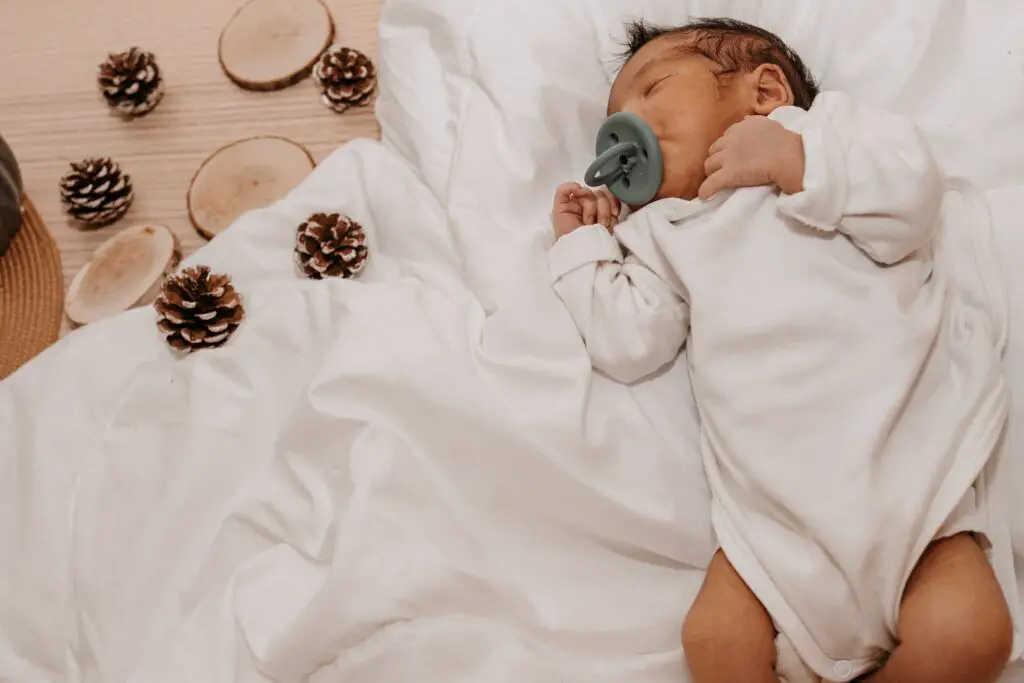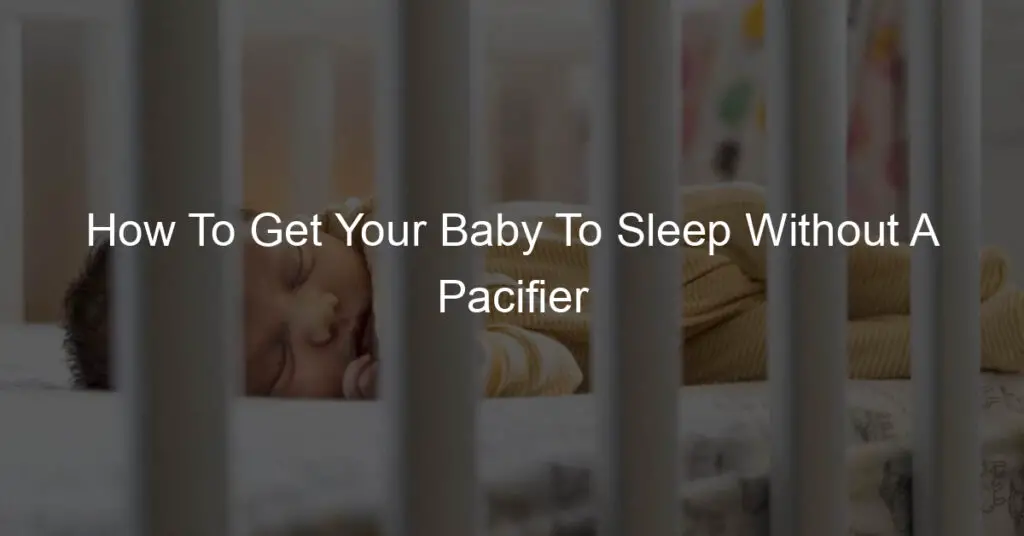Introduction: The Challenge of Baby Sleep Training
As a parent, one of the most significant challenges you’ll face is baby sleep training. It’s a process that requires patience, consistency, and understanding of your baby’s sleep habits. This article aims to provide you with the necessary information and tips to make this journey smoother and more manageable.
-
- Understanding baby sleep habits
Babies have different sleep patterns compared to adults. They spend more time in REM sleep, which is a lighter sleep stage where dreams occur. This is why they wake up more often. Understanding your baby’s sleep cycle can help you establish a more effective sleep training routine. Learn more about baby sleep habits here.
-
- Common parenting tips for newborns
Establishing a consistent bedtime routine and creating a sleep-friendly environment are two common tips for new parents. A bedtime routine can include activities like bathing, reading a book, and feeding. A sleep-friendly environment, on the other hand, is quiet, dark, and has a comfortable room temperature. Remember, every baby is unique, so what works for one might not work for another.
-
- The role of pacifiers in baby sleep
Pacifiers can be a useful tool in baby sleep training. They provide a source of comfort and can help your baby self-soothe. However, reliance on pacifiers can also lead to sleep problems in the long run. It’s essential to use them wisely and start weaning your baby off the pacifier at the right time. We will delve deeper into this topic in the following sections.
Continue reading to learn more about the role of pacifiers in baby sleep, when and how to wean your baby off the pacifier, and pacifier-free solutions to common baby sleep problems.
Understanding the Role of Pacifiers

Pacifiers, also known as dummies or soothers, play a significant role in a baby’s life. They are often used as a comforting tool for infants. Let’s delve into the benefits of pacifiers to understand their role better.
Benefits of Pacifiers
Pacifiers offer several benefits that can aid in your child’s comfort and development. Here are a couple of key benefits:
- Comforting to babies: Pacifiers are designed to provide a soothing and calming effect for babies. The act of sucking on a pacifier can help to reduce crying and fussiness, providing comfort to your little one. According to a study on Wikipedia, sucking on a pacifier can help babies self-soothe and feel secure in new or challenging situations.
- Helps in soothing the baby to sleep: Many parents find that a pacifier can be a useful tool in helping their baby fall asleep. The soothing effect of the pacifier can help lull your baby into a peaceful sleep. It’s important to note, however, that while pacifiers can aid in getting your baby to sleep, they should not be used as a replacement for proper sleep training techniques.
While pacifiers can be a useful tool in providing comfort and aiding in sleep, it’s important to use them responsibly and understand the potential drawbacks. In the next section, we’ll explore some of the potential issues associated with pacifier use.
Drawbacks of Pacifiers
While pacifiers can provide comfort and help soothe babies to sleep, they also come with certain drawbacks. These drawbacks can impact both the baby and the parents, making it important to understand them fully.
-
- Dependency Issues
One of the main drawbacks of pacifiers is the potential for dependency. Babies can become so accustomed to having a pacifier that they struggle to sleep or calm down without it. This dependency can make it difficult for parents to wean their child off the pacifier. Moreover, it can lead to a higher risk of middle ear infections and dental problems in the long run. According to a study, prolonged use of pacifiers can lead to changes in the shape of the mouth and teeth.
-
- Interference with Sleep Training
Another significant drawback of pacifiers is their potential to interfere with sleep training. While pacifiers can initially help babies fall asleep, they can also disrupt their sleep. This is because when the pacifier falls out of the baby’s mouth during sleep, the baby may wake up and have difficulty falling back asleep without it. This can lead to fragmented sleep and make sleep training more challenging. A research shows that babies who use pacifiers are more likely to have interrupted sleep than those who don’t.
In conclusion, while pacifiers can be helpful in certain situations, they also have potential drawbacks. It’s important for parents to weigh these pros and cons and make an informed decision about whether to use a pacifier with their child.
Pacifier Weaning: When and How?
As your baby grows, there comes a time when they need to let go of their pacifier. This process, known as pacifier weaning, can be a challenge for both parents and babies. But, with the right approach and timing, it can be a smooth transition. In this section, we will explore the signs that your baby is ready for pacifier weaning and provide a step-by-step guide to help you through this process.
-
Signs your baby is ready for pacifier weaning
Every baby is unique and will show readiness for pacifier weaning in different ways. However, there are some common signs you can look for:
- Your baby can soothe themselves without the pacifier.
- Your baby frequently spits out the pacifier.
- The pacifier is interfering with your baby’s speech or dental development.
- Your baby shows more interest in other comfort objects, like a blanket or stuffed animal.
Remember, it’s important to consult with your pediatrician before starting the pacifier weaning process.
-
Step-by-step guide to pacifier weaning
Once you’ve determined that your baby is ready to wean off the pacifier, you can follow these steps:
- Prepare for the process: Explain to your child what is going to happen. Use simple, positive language.
- Gradual withdrawal: Start by limiting pacifier use to certain times, like nap time or bedtime. Gradually decrease these times over a week or two.
- Offer alternatives: Provide other forms of comfort, such as a favorite toy or blanket.
- Positive reinforcement: Praise your child for their progress and offer small rewards.
- Consistency: Stick to the plan and avoid giving in during difficult moments. Consistency is key to successful pacifier weaning.
Remember, every child is different and what works for one may not work for another. Be patient and flexible during this process.
In the next section, we will explore the possibility of newborn sleep without a pacifier and provide tips for baby sleep problems without pacifier use.
Newborn Sleep Without Pacifier: Is It Possible?

Many parents wonder if it’s possible for their newborn to sleep without a pacifier. The answer is yes, it’s possible, but it requires understanding your baby’s sleep cycle and establishing a routine that works for them.
Understanding Baby’s Sleep Cycle
Understanding your baby’s sleep cycle is the first step towards helping them sleep without a pacifier. Here are some key insights:
- How babies’ sleep differs from adults’: Unlike adults, babies don’t follow the typical sleep-wake cycle. They have shorter sleep cycles and spend more time in rapid eye movement (REM) sleep, which is a lighter stage of sleep. This is why they wake up more often. [source]
- Importance of establishing a sleep routine: A consistent sleep routine can help your baby understand when it’s time to sleep. This can include activities like a warm bath, a bedtime story, or a lullaby. Over time, these cues can help your baby fall asleep without the need for a pacifier.
Remember, every baby is unique and what works for one might not work for another. It’s important to be patient and flexible as you figure out what works best for your little one.
Methods for Pacifier-Free Sleep
Transitioning your baby to sleep without a pacifier can seem like a daunting task. However, with the right approach, it is entirely achievable. Here are two effective methods:
-
- Creating a Comforting Environment
Creating a soothing and familiar environment can make a significant difference in helping your baby sleep without a pacifier. This can include maintaining a consistent bedtime routine, using a white noise machine, and ensuring the room is dark and at a comfortable temperature. According to a study, a consistent bedtime routine can improve sleep quality and duration in children.
-
- Using Baby Sleep Aid Alternatives
There are several alternatives to pacifiers that can help your baby sleep. These can include swaddling, using a sleep sack, or introducing a lovey or security blanket. It’s important to note that each baby is unique, and what works for one may not work for another. Therefore, it may take some trial and error to find the most effective sleep aid for your baby. A study found that sleep training methods that involve comforting items like a security blanket can be as effective as using a pacifier.
In conclusion, while pacifiers can be a helpful tool in getting your baby to sleep, they are not the only solution. By creating a comforting environment and exploring other sleep aid alternatives, you can successfully transition your baby to sleep without a pacifier.
Tips for Baby Sleep Problems: Pacifier-Free Solutions
Many parents rely on pacifiers to soothe their babies to sleep. However, there are several other effective methods that can help your baby fall asleep without the need for a pacifier. Let’s explore some pacifier-free solutions to common baby sleep problems.
-
- How to soothe a baby to sleep without a pacifier
There are several ways to soothe a baby to sleep without a pacifier. One effective method is to create a calm and soothing environment. This can be achieved by dimming the lights, reducing noise levels, and playing soft lullabies or white noise. A gentle massage or a warm bath before bedtime can also help to relax your baby and prepare them for sleep. Additionally, holding your baby close and rocking them gently can provide comfort and help them to fall asleep. Remember, each baby is unique and what works for one may not work for another. It may take some trial and error to find what works best for your baby.
-
- Establishing a baby sleep routine without a pacifier
Establishing a consistent sleep routine can help your baby to fall asleep without a pacifier. This routine could include activities such as feeding, bathing, and reading a story before bed. It’s important to keep this routine consistent, as this helps your baby to understand that it’s time to sleep. Over time, this routine will become a cue for your baby to start winding down and prepare for sleep. It’s also important to ensure that your baby’s sleep environment is conducive to sleep. This means keeping the room dark, quiet, and at a comfortable temperature. Remember, consistency is key when establishing a sleep routine.
In conclusion, while pacifiers can be a useful tool for soothing a baby to sleep, they are not the only solution. By creating a calm environment, establishing a consistent sleep routine, and using other soothing techniques, you can help your baby to fall asleep without the need for a pacifier.
Case Studies: Successful Pacifier Weaning and Sleep Training
Let’s delve into some real-life examples of how parents have successfully helped their babies transition to pacifier-free sleep and overcome sleep problems without the use of a pacifier.
-
Case Study 1: Transitioning to pacifier-free sleep
Meet Sarah and her 18-month-old son, Noah. Noah was heavily dependent on his pacifier to fall asleep. Sarah decided to wean Noah off his pacifier by gradually reducing the time he spent with it. She started by only allowing the pacifier during nap and bedtime, then eventually removed it completely.
It was a challenging process, with some sleepless nights. However, Sarah remained consistent and patient. She replaced the pacifier with a soft toy that Noah could cuddle with. Over time, Noah began associating the toy with sleep instead of his pacifier. After a few weeks, Noah was able to sleep without his pacifier, proving that with patience and consistency, pacifier weaning can be successful.
-
Case Study 2: Overcoming sleep problems without a pacifier
Next, we have John and his daughter, Emma. Emma never took to a pacifier, but she had trouble falling asleep on her own. John decided to try sleep training methods to help Emma. He chose the “gradual retreat” method, where he would stay with Emma until she fell asleep, gradually reducing the time he spent in her room each night.
John also established a consistent bedtime routine, including a bath, story, and lullaby. This routine helped signal to Emma that it was time to sleep. After several weeks, Emma was able to fall asleep on her own without any assistance. This case study shows that even without a pacifier, sleep problems can be overcome with the right strategies and consistency.
These case studies demonstrate that while pacifier weaning and sleep training can be challenging, they are achievable with patience, consistency, and the right strategies. Remember, every child is unique, and what works for one may not work for another. It’s about finding what works best for your child and your family.
Conclusion: Mastering Baby Bedtime Without a Pacifier
As we conclude this comprehensive guide, let’s recap the key takeaways and provide some final tips to help you master baby bedtime without a pacifier. Remember, the journey to pacifier-free sleep may be challenging, but with patience and consistency, success is within reach.
-
Recap of Key Takeaways
- Pacifiers can be a useful tool in soothing babies, but they can also become a sleep crutch that can be difficult to wean off.
- It’s essential to understand the role of pacifiers and the potential challenges they can pose in sleep training.
- Weaning off the pacifier should be a gradual process that respects your baby’s comfort and readiness.
- It’s entirely possible for newborns to sleep without a pacifier. It’s all about establishing healthy sleep habits from the start.
- There are numerous pacifier-free solutions to baby sleep problems, such as creating a consistent bedtime routine, using white noise, and offering a comfort object.
- Real-life case studies show that successful pacifier weaning and sleep training are achievable with the right strategies and a lot of patience.
-
Final Tips for Successful Sleep Training and Pacifier Weaning
- Start by introducing the change during nap times before moving on to nighttime sleep.
- Be consistent in your approach, even if it’s tough at first.
- Offer plenty of comfort and reassurance during the transition period.
- Remember, every baby is unique. What works for one may not work for another. Be patient and flexible in finding what works best for your child.
- Don’t hesitate to seek professional help if you’re struggling with the process. A sleep consultant can provide valuable guidance and support.
Mastering baby bedtime without a pacifier is a significant milestone in your child’s development. It’s a journey that requires patience, consistency, and understanding. But with the right strategies and a positive mindset, you can help your baby develop healthy sleep habits that will benefit them for years to come.














